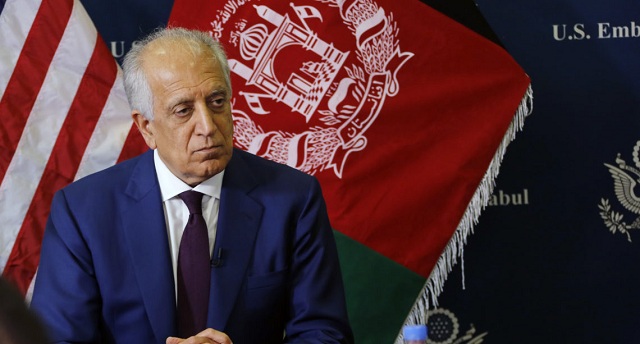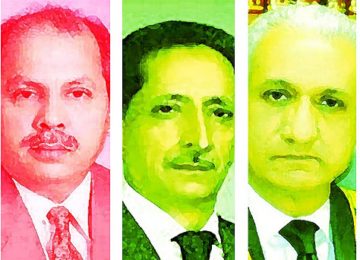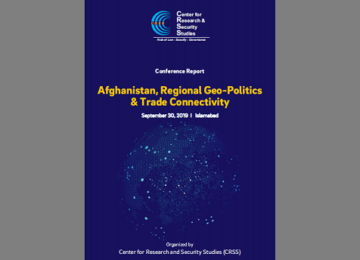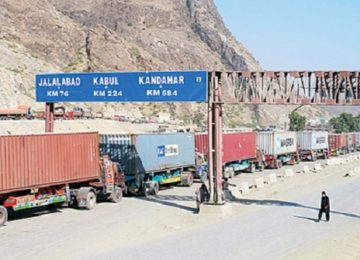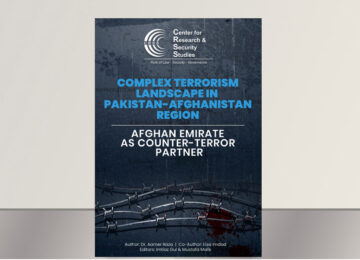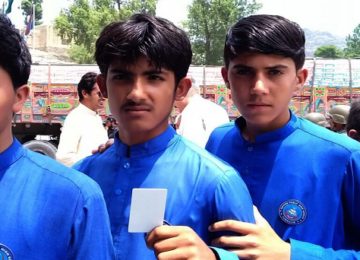May 7, 2019
The prospects of the Afghan peace process, after eight months of rigorous talks between US envoy Zalmay Khalilzad and the Taliban, have attracted various comments but one thing has become obvious; the peace process has finally taken off after initial deadlocks. Zalmay Khalilzad has resumed his shuttle diplomacy and he seems to have extracted consent from Russia and China while making a stopover in Moscow last week. His Chinese and Russian counterparts gave their support to the American efforts for bringing peace in Afghanistan. Moreover, he has also held important talks with government and foreign office officials in Afghanistan.
On the other hand, a consultative Grand Jirga was convened by President Ashraf Ghani to consolidate his position in relation to the peace talks and Taliban. At the conclusion of the Jirga, which selected former warlord Rasool Siaf as its President, it was announced that the government side would nominate from amongst 3,000-plus Jirga members its representatives for the forthcoming intra-Afghan dialogue which were suspended last month due to the Taliban’s objection to the long list of Afghan delegates representing the government. It appears that the government side has been unable to consolidate its position due to lack of understanding form amongst the government officials. How President Ghani plays his cards in the coming days would be watched with keen interest. This is because while he presented his nominees for the intra-Afghan dialogue, major players, including Abdullah Abdullah, Hamid Karzai and Haneef Athmar, opted out of the Jirga proceedings.
In terms of how the US wants to approach the peace process, direct communication with the Taliban already says a lot about the US direction and plan of action in Afghanistan for the future. Ironically, Ashraf Ghani who, as President, should have offered guarantees that the Afghan soil would not be used by terrorists was unable to do so. It is obvious that the Taliban who control more than half of the country could offer much better guarantees than Mr Ghani. The Afghan Supreme Court’s controversial ruling of extending his tenure till the holding of new elections has already caused heartburns even within the ruling National Unity Government (NUG) partners. With these complications, President Ghani would be expecting too much from Pakistan to get a seat at the “High Table” with the US and the Taliban, especially if the latter disagrees to his participation. Hence, it goes without doubt that a frustrated or wounded Ashraf Ghani may be equally embarrassing for the reconciliation and peace process in Afghanistan.
If one looks at the current trend, Ghani is likely to end up in a secondary position which would be unacceptable to him. Consequently, he may start playing the spoiler’s role which would provide fertile ground to the outsiders to meddle in Afghanistan, meaning that the country remains unstable.
Additionally, one also has to keep in mind the non-Pashtun ethnic groups in the country. These groups may become frustrated of the ongoing peace process unless an intra-Afghan dialogue allays their apprehensions. This would entail greater responsibility upon the Taliban to raise the comfort level of other ethnic groups, however, satisfying these groups and their well-entrenched warlords, in the system, would be an uphill task.
Also, even with the discussion of peace in the country, none of the stakeholders have discussed major issues which Afghanistan is likely to face after the withdrawal of the US troops. The following scenarios, questions and complications would be faced by the future Afghan government after the withdrawal of the coalition troops:
– Who will meet Afghanistan’s financial requirements and how? American watchdog SIGAR (Special Inspector General for Afghanistan Reconstruction) has quoted IMF assessment according to which “it will take Kabul another four years to contribute 50 per cent to its own budget”. The future sustenance of Afghanistan would be a mammoth task and would require deft handling, which would also call for accommodation of all local stakeholders and groups in power.
– Another major question, given its orientation and political developments in the last two decades, is whether Afghanistan retains its character as an “Islamic Emirate” or “Islamic Republic”? The Taliban may have put up tough resistance to the Americans but within the country they will have to accommodate various interest groups. If they brush aside aspirations or demands of the people, which they did in the past, this would only create unrest in the country. Internationally also, the Taliban’s behaviour would be monitored minutely, especially their treatment of women and ethnic or religious minorities would play a major role in how the international community engages with the country and the Taliban, if the latter forms a significant part of the government.
– Another question that remains to be answered is what will be the status of Afghan National Army, the National Police and the Taliban fighters and how will they be accommodated in the country’s security apparatus? Any neglect by the future Afghan government or international community would mean that these fighters or even army or police personnel would become available to highest bidders, including the IS.
Even with all the deliberation and care meted to the US-Taliban talks, major challenges lie ahead for Pakistan. The foremost challenge would be maintaining a balance between all Afghan groups while playing the role of a facilitator. Taliban are already identified with Pakistan, but this would not be enough for Pakistan as it would have to be sensitive to the overall peace of Afghanistan which could be ensured if various ethnic and religious minorities are satisfied. Similarly, Afghanistan’s neighbours would expect a future dispensation in Afghanistan which is not a threat to their societies or promote fundamentalist tendencies. While the Taliban have assured that they do not follow an outward looking agenda, their actions will still be closely monitored by regional and global actors.
Because of these complications, Pakistan will have to be watchful in the coming days and weeks when the peace talks between the US and Taliban would be entering a crucial phase. Without being provoked by the Afghan and other regional detractors, Pakistan will have to engage all Afghans who can positively contribute to the Afghan peace. However, Pakistan alone would not be able to play its positive role if spoilers amongst Afghans and outsiders are not roped in and counselled to contribute towards Afghan peace. This means that assurance will have to be taken from regional and global actors, including the US, China, Russia and others, who are invested in a peaceful Afghanistan.
The author, Asif Durrani, is a former ambassador.



